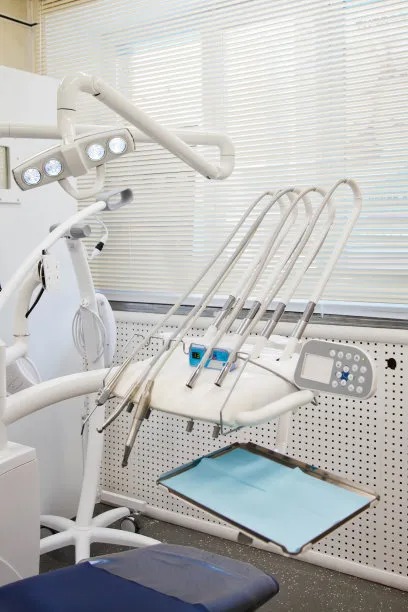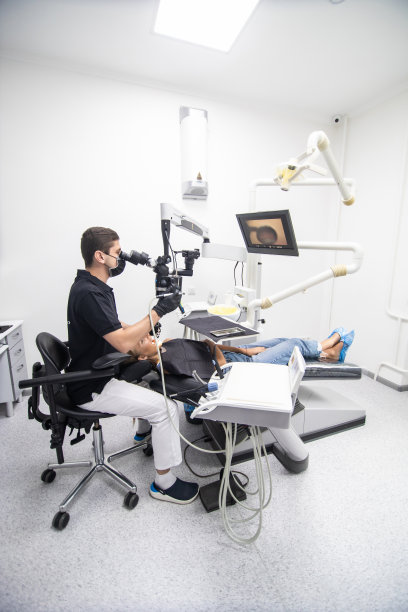Summary: Dental fillings are crucial for maintaining oral health, but proper care before and after the procedure is essential for achieving optimal results and a smooth recovery. This article outlines essential guidelines to follow, covering pre-procedure preparations, post-procedure care, potential complications, and professional follow-up. Understanding these aspects not only helps in making informed decisions but also enhances your overall dental experience, ensuring that your fillings last longer while minimizing discomfort and ensuring proper healing.
1. Prepare Yourself for the Dental Visit

Before you head to the dentist for a filling, its vital to gather any relevant medical information. This includes details about your current medications, allergies, and previous dental procedures. Knowledge of your medical history will help your dentist provide tailored care and prevent potential complications during the filling process.
Additionally, having a clear understanding of the procedure itself can ease your anxiety. A dental filling usually involves anesthesia, removing decay, and filling the cavity with a suitable material. Familiarizing yourself with what to expect can significantly reduce fear and discomfort at the appointment.
It’s also advisable to arrange for transportation after your appointment, especially if sedation is used during the procedure. This will ensure you reach home safely and comfortably, as the effects of anesthesia may hinder your ability to drive or operate machinery.
2. Essential Precautions After the Procedure
After receiving a dental filling, careful monitoring is essential to promote healing. Avoid consuming hot or cold foods and beverages for at least 24 hours after the procedure to prevent any discomfort or sensitivity in the filled tooth. This precaution helps the filling material properly bond without disturbance.
In the first few hours post-treatment, you may experience residual anesthesia. While it feels strange, it’s important not to chew, bite, or eat until the numbness wears off to avoid unintentional injuries to your cheeks or tongue.
Moreover, maintaining good oral hygiene is crucial. Gently brush your teeth as usual but avoid the filled area until you are completely comfortable. This helps prevent any onset of infection around the filling and contributes to overall oral health.
3. Recognizing Complications Early
While dental fillings are generally safe, complications can arise. Pay close attention to any dull ache or sharp pain in the filled tooth after the procedure. This could indicate that the filling has become loose or that there is residual decay. If such issues arise, it’s important to contact your dentist promptly.
Moreover, observing any swelling, bleeding, or prolonged discomfort can signify an adverse reaction. Although minor sensitivity is common, severe pain is not acceptable, and immediate professional evaluation is warranted. Acting quickly can often mitigate further dental problems down the line.
Lastly, stay aware of changes in your bite. If the filling feels uneven or high, this can lead to further complications. It’s crucial to have your dentist assess and adjust the filling to ensure proper alignment with your natural dental structure.
4. Follow-Up Care for Long-Term Success
Scheduling regular follow-up appointments is paramount for maintaining the health of your fillings. Your dentist will check the integrity of the filling and assess any changes in your oral health during these visits. This proactive approach helps identify problems before they escalate, ensuring the longevity of your filling.
Additionally, practicing good oral hygiene at home plays a significant role in supporting the health of your fillings. Daily brushing and flossing help prevent decay around the filling, while routine dental cleanings allow professionals to keep an eye on any early signs of potential issues.
Lastly, maintain a healthy diet and limit sugary snacks. Proper nutrition is vital not only for overall health but also specifically for dental health. Keeping your teeth strong will contribute to the longevity of any dental work you have done.
Summary:
Effective preparation and aftercare significantly impact the success of your dental filling procedure. By understanding what to do before and after the treatment, you can enhance your comfort, minimize potential complications, and prolong the life of your fillings. Always remember that your dentist is there to assist and support you through the process.
This article is compiled by Vickong Dental and the content is for reference only.
Vickong Dental
Vickong Dental is a large medical group established in Hong Kong in 2008 by professors from well-known medical universities in Guangdong and Hong Kong, as well as medical doctors from key national '985' universities (including Master's supervisors and senior professors). The chain of branches brings together expert dentists with PhDs and Master's degrees from Hong Kong and Mainland China, committed to providing high-quality dental treatment.
"Vickong Dental Practices the University Motto of 'Healing and Serving Society,' with a Stable Operation for Sixteen Years. It Has Been honored with Hong Kong Enterprise Leaders's Choice,' and is a Global Trusted Implant Center for the Nobel Implant System. Recommended by Hong Kong Metro Broadcast and Guangdong Television, it Serves Customers from Over Thirty Countries and Regions, Gaining the Trust and Favor of Citizens from the Guangdong-Hong Kong-Macau Greater Bay Area and Surrounding Cities.

Thousands of customers' unanimous praise
The most recognized and highly recommended dental service by customers in the Guangdong-Hong Kong-Macau Greater Bay Area
We Ensure You Receive Detailed Care and Attention Here
Hong Kong standards, Shenzhen prices, Your Trusted English-speaking dentists

Vickong Dental Medical-Grade Instrument Disinfection Process
Vickong Dental Medical-Grade Instrument Disinfection Process

Vickong Dental Chain: A Warm and Comfortable Environment for Treatment






Appointment Hours

Q&A
Why choose Vickong Dental?
Vickong Dental practices the university motto 「Medicine to Benefit Society」, with each branch bringing together highly qualified dentists with doctoral and master’s degrees from Hong Kong and the Mainland, and has maintained seventeen years of steady operation。Recipient of 「2024 Hong Kong Enterprise Leaders Brand」, 「2025 Hong Kong Enterprise Leaders Brand」, a Nobel Biocare Global Trusted Implant Center, and a brand recommended by Metro Radio Hong Kong and Guangdong TV。
To date, we have served customers from more than thirty countries and regions,earning exceptionally high word-of-mouth recognition and trusted recommendations from residents across the Guangdong-Hong Kong-Macao Greater Bay Area and surrounding cities
We have eight major branches in Zhuhai、Shenzhen,and a consultation and service assurance center in Hong Kong,so you can book a free consultation at any time for any questions,which is very reassuring.
If I do not accept the quotation after the CT scan, will I be charged??
No! As long as the actual treatment has not started, you will not be charged any fees.
Will there be any additional charges during the treatment process?
No, there won’t be any additional charges. Before treatment begins, we will clearly explain the treatment plan and its corresponding fees. Only after the patient agrees and signs the consent form will we proceed with the dental service.
Can I pay in Hong Kong dollars?
Yes. Vickong Dental accepts payment in Hong Kong dollars. The amount will be converted based on the exchange rate of the day, and the applicable rate will be clearly communicated to you in advance.
Can I reschedule my appointment at any time?
Yes. Please contact us via **WeChat** or **WhatsApp** as early as possible, providing your original appointment time and details, along with your preferred new date and time slot for rescheduling.













